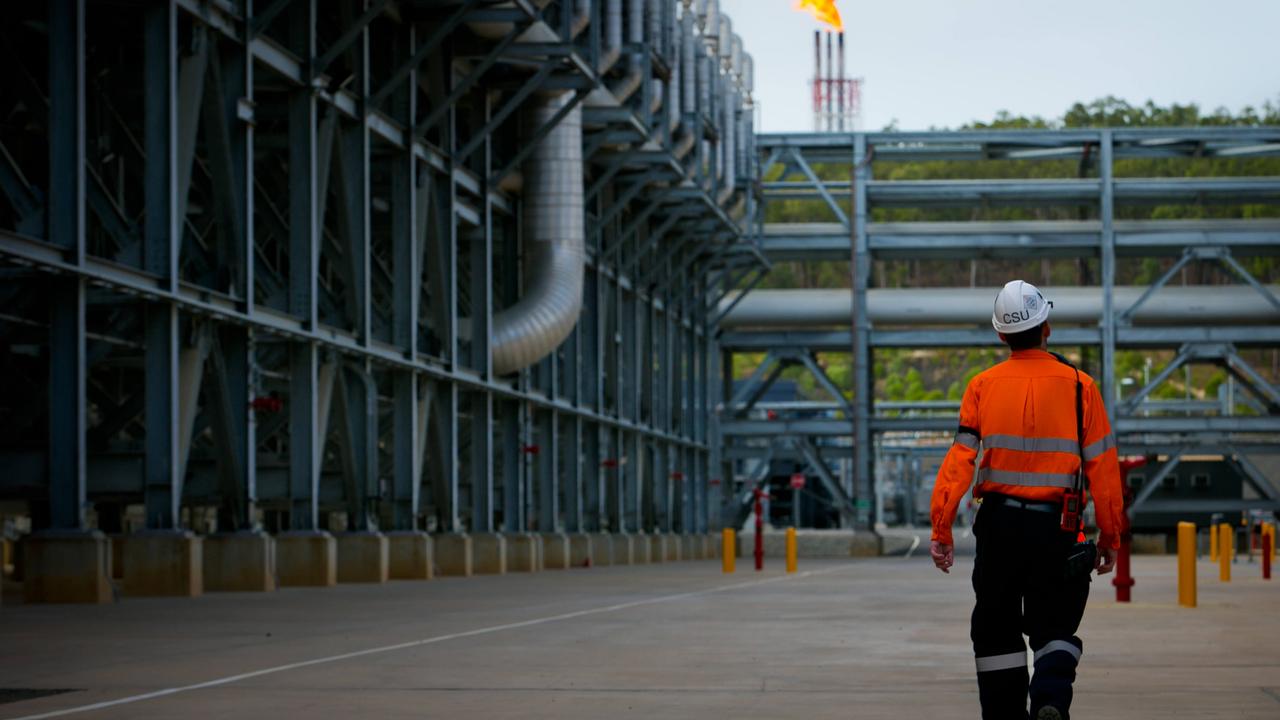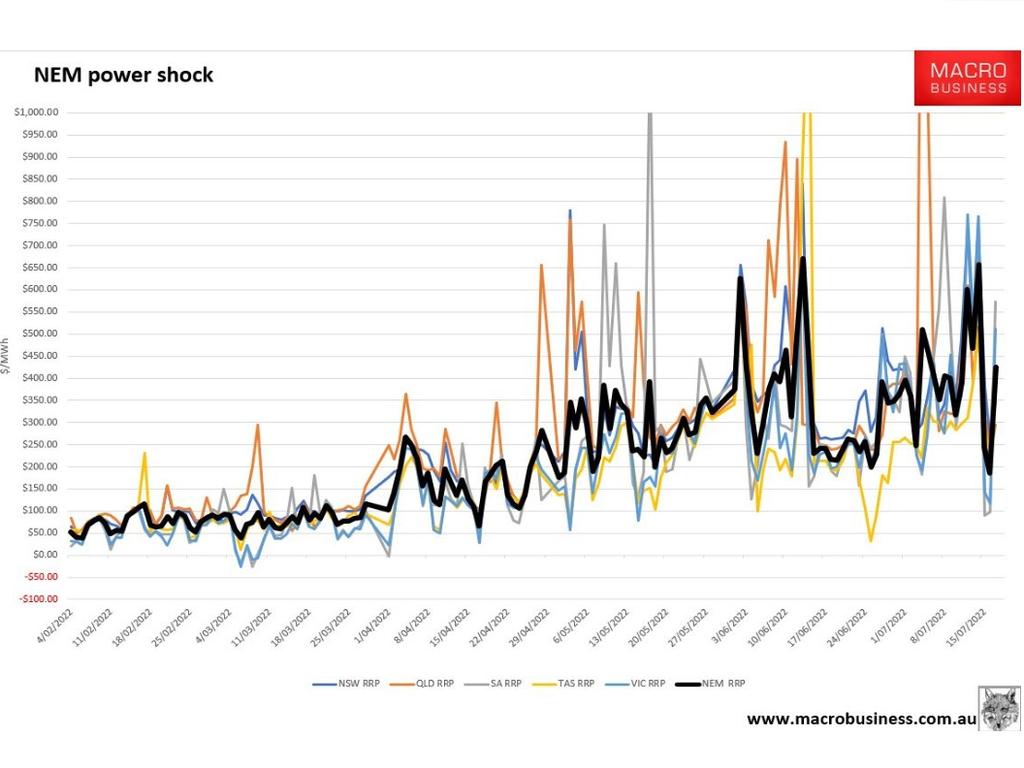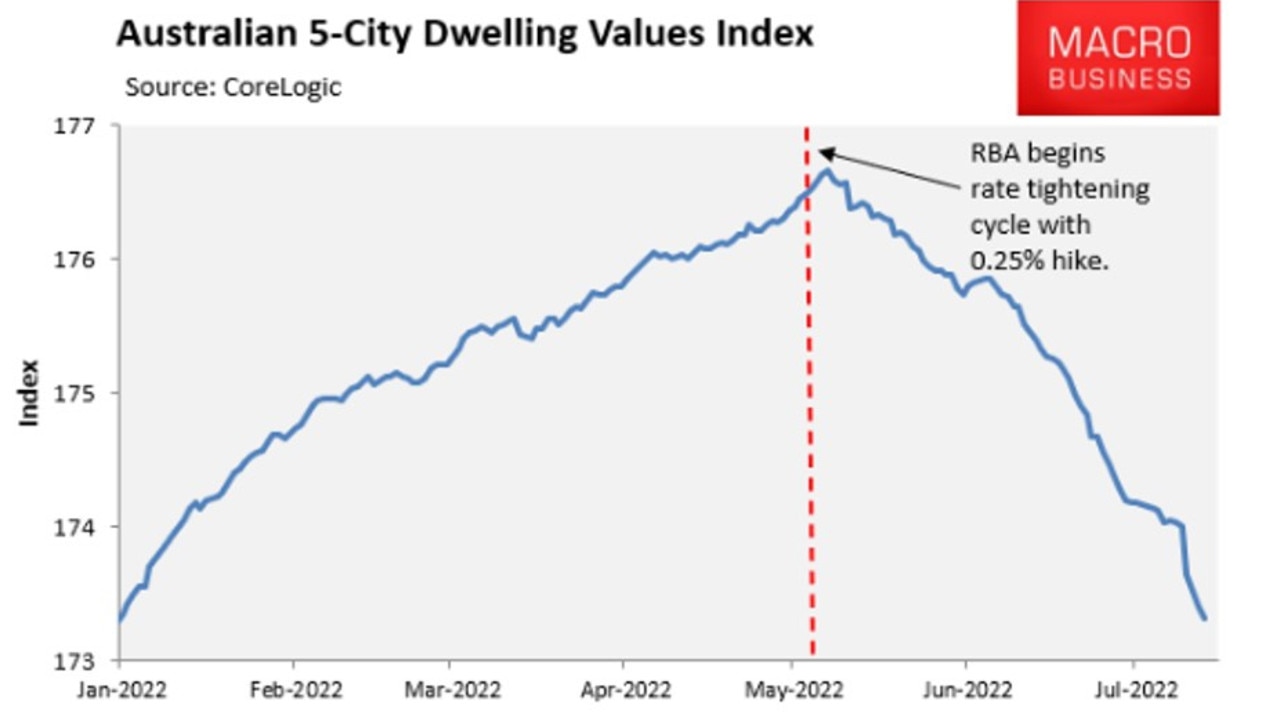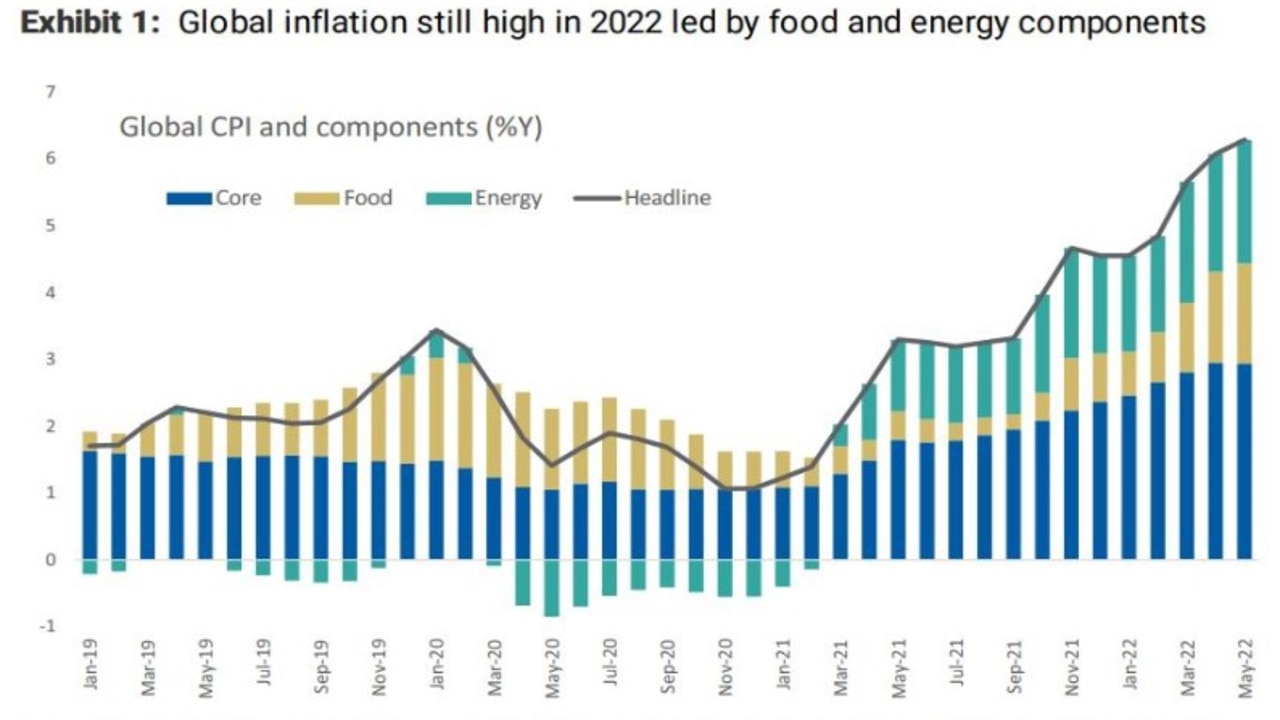Energy boom is smashing Australian house prices, food costs
As everyday Australians struggle to pay their bills and see their house prices drop, one type of company is riding record profits.
ANALYSIS
The Australian economy is caught in the strangest of paradoxes. Our key commodity prices are booming thanks to Russian sanctions. Yet our income and wealth are dropping at an alarming speed.
This is contrary to all recorded similar booms in Australian history so what has it gone wrong this time around?
The tale is one of economic bastardry that is more at home in a Third World banana republic than it is a modern liberal democracy.
It begins in the last commodity mania, the China boom, that delivered the prosperity of the pre- and post-GFC period. Above all, it was the investment in the construction of facilities to convert local gas into exportable LNG that drove that boom.

Both Western Australia and Queensland enjoyed the good times but the two states structured them very differently.
In the west, authorities imposed what is known as “domestic reservation” on gas producers, ensuring 15 per cent of gas remained for local use. In the east, no such restrictions were imposed. Though the firms involved did promise not to leave the east coast short.
One of the leading firms, Santos, was explicit in this undertaking in 2010: “We have plenty of gas,” it told investors. “We have the reserves we require, which is why we’ve not been participating in acquisitions in Queensland of late – we have the reserves, we’re very confident of that.”
But it didn’t have the reserves and, shortly afterwards, it bought up and exported the surplus gas that was holding down the local price.
Gas prices have been rising ever since, from $4Gj at the time to $44Gj today, the same price as gasless Europe. And it is only held from going higher by a regulatory cap.
Today, 71 per cent of east coast gas exports go to China and two of its state-owned firms, Sinopec and CNOOC, are part-owners of the LNG assets.
Cometh the power shock
Such a high gas price has been hollowing out the Aussie manufacturing base ever since. But the average 200 per cent price hike up until this year did not really impact the wider economy.
That all changed when the Ukraine war drove global gas prices wild as Russia cut supply to Europe in February.
The problem is, gas-fired power also sets the marginal costs of electricity on the east coast. Since the gas price spiked 1000 per cent this year, wholesale electricity prices have also spiked as much as 1300 per cent.

Thankfully, wholesale power prices only constitute 20 per cent of retail prices. The rest goes on poles and wires, and retailers, etc. But a 500 per cent wholesale price shock still means a 100 per cent+ utility bill shock has begun for every household and business on the east coast.
This is directly raising inflation as measured by the Consumer Price Index by 3 per cent this year. Once we add the pass-on into other costs, given energy is a cost input into everything, it will look more like 5 per cent.
Enter the RBA and house prices
Needless to say, such tearaway inflation is the kind of thing that keeps the RBA up at night. And it is responding very aggressively. More so than just about anybody can remember with 50bps rate hikes.
The response in house prices has been swift and brutal with the major cities now seeing price falls of 2 per cent per month.

The same is happening overseas and, in due course, this will deliver falls in all kinds of prices, from goods to services which will slow inflation.
But, what it will not do is fix the energy crisis in gas and coal. These are now attracting scarcity pricing worldwide owing to Ukraine war-inspired shortages. Worse, these energies are very large cost inputs into food production so those prices will remain high as well.

So, the RBA (and other central banks) will have to hike much further than they would normally as they chase energy prices that they cannot affect.
Obviously, in Australia, house prices will bear the brunt of this, just as incomes are smashed by tearaway utility bills.
Miners crash Australia
At this point, if you are wondering why it is that Australia, the energy superpower, is being drawn into this inflationary energy vortex, then you give yourself a gold star.
There is no reason at all why an energy supplier of Australia’s capacity needs to import foreign energy prices. Especially so when those that are doing it – the LNG exporters – lied about leaving enough gas at home, so as they now ship our $1Gj gas to China for $44Gj and then charge us the same price.
Just look at WA where the gas price is $5Gj because it keeps enough cheap gas for itself. Indeed, that state would be better off contemplating whether or not it needs its own central bank to go with its excellent gas reservation system.
This energy shock is entirely self-imposed for Australia and the Albanese government could fix it in an instant.
It could retrospectively impose domestic reservation on the LNG firms that were so loose with the truth. The firms will scream “sovereign risk” in response but who cares given the risk that their lies pose to the sovereign?
The government could impose export levies benchmarked to pre-Ukraine prices on the gas and coal exporters. After all, they are war-profiteering, don’t own the commodities (we do), and have no right to such a revenue windfall. This would instantly crash the local price of gas and coal, plus power, and direct a river of revenues into the budget.
Or, Mr Albanese could impose super-profits taxes on the gas and coal war-profiteers and then recycle that revenue as energy subsidies for everybody else.
All of these measures are entirely justified on the basis that war-profiteering has crashed Australia’s east coast energy markets. Such market failure demands regulatory intervention.
Indeed, if the Albanese government does not take one of these policy routes then it will have turned another stroke of Australian luck into the greatest slump in Australian living standards since the Great Depression.
David Llewellyn-Smith is Chief Strategist at the MB Fund and MB Super. David is the founding publisher and editor of MacroBusiness and was the founding publisher and global economy editor of The Diplomat, the Asia Pacific’s leading geopolitics and economics portal. He is the co-author of The Great Crash of 2008 with Ross Garnaut and was the editor of the second Garnaut Climate Change Review. MB Fund is underweight Australian iron ore miners.





